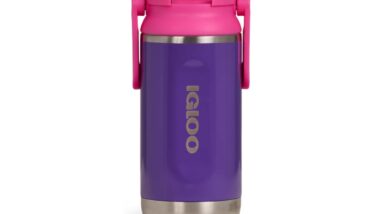Top Class Actions’s website and social media posts use affiliate links. If you make a purchase using such links, we may receive a commission, but it will not result in any additional charges to you. Please review our Affiliate Link Disclosure for more information.

The robocall bill—which has widespread support among both Democrats and Republicans—will make illegal a numbers of tricks used to scam the U.S. public by telephone and text messaging, according to The Verge.
Democrat Frank Pallone Jr. from the State of New Jersey, Chairman of the Energy and Commerce Committee, noted how much citizens are fed up with automatic telephone dialing systems (ATDS) calls. Pallone indicates that the goal of ending robocalls is critical because an estimated 47 billion were made and received last year alone.
When it passed, as indicated in The Verge report, The “Stopping Bad Robocalls Act” will require major cell carriers to employ technology which helps the consumer determine call origin. While this technology won’t be ending robocalls any time soon, it will use the caller ID to help consumers know when a call is authentic or spam. The act would prevent carriers like T-Mobile, Verizon, Sprint, and AT&T from passing on the cost of this service to their patrons.
According to a July 24, 2019 CNET.com article, the Act passed the House of Representatives almost unanimously with affirmative votes numbering 423 and opposition votes numbering just three. Part of the comprehensive support is likely due to the ever increasing volume of complaints over robocalls that lawmakers have received over the last few years. As indicated by the report, complaints rose from 172,000 three years ago to 232,000 last year.
ZDNet notes the Stopping Bad Robocalls Act—once it clears the Senate–will make prosecution of illegal robocallers simpler by adding time to a currently restrictive statute of limitations. The limitations period will be able to be extended by as much as five years after the Federal Communications Commission (FCC) updates its definition of the term robocall.
Additionally, the bill increases the legal consequences for willful violations of the law restricting the use of robocalls. If it is proven that someone has intentionally broken the law, additional penalties of up to $10,000 per incident can be assessed. Stronger prosecution of criminal robocall activity will be encouraged by the legislation as well. It will require the FCC to pass on any gathered evidence of criminal robocall actions to the U.S. Department of Justice (DOJ).
As indicated by a July 17, 2019 Law360 review of the bill, Republican Bob Latta of Ohio claimed the new legislation has the capacity to preserve citizens’ access to life-saving calls and text messages while weeding out those than mock authentic sources for ill-begotten gain.
Now that the bill has passed the House of Representatives, it is unclear how long it will take to be addressed by the Senate—the next step in the legislative process.
Join a Free TCPA Class Action Lawsuit Investigation
If you were contacted on your cell phone by a company via an unsolicited text message (text spam) or prerecorded voice message (robocall), you may be eligible for compensation under the Telephone Consumer Protection Act.
This article is not legal advice. It is presented
for informational purposes only.
ATTORNEY ADVERTISING
Top Class Actions is a Proud Member of the American Bar Association
LEGAL INFORMATION IS NOT LEGAL ADVICE
Top Class Actions Legal Statement
©2008 – 2024 Top Class Actions® LLC
Various Trademarks held by their respective owners
This website is not intended for viewing or usage by European Union citizens.















2 thoughts onLegislation Aimed at Ending Robocalls Passes House
add me
add me